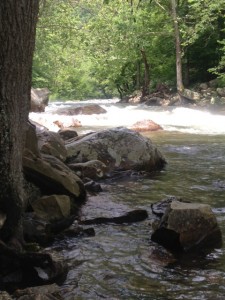At first glance, you might think that someone who traditionally teaches literacy might not be able to work in the homogenization of mouse organs into the everyday learning of elementary students. In fact, many of the lab experiences I have taken part in this summer are out of the realm of what is expected of most 5 to 11 year olds. What has become increasingly evident is the need for continued education in the area of food safety.
Though our work has been primarily around salmonella, we have continued to learn about other types of bacteria. What we keep coming back to is the idea of the importance of the educational piece. For me personally, I can see many areas to use my learning in the classroom. Of course our ultimate goal is to create a curriculum as a team with lessons that are vertically connected K-12. My goal is going to also include another piece.
It has been fortunate that the Eggstatic group has been able to work with two sets of mentors: those primarily involved in research at the lab and those primarily involved in the curriculum end at 4H. I definitely had the wrong idea about 4H when I began this project. Although it was the piece that initially drew me into this project, I, like many others, believed that 4H was simply a wonderful program primarily built on agriculture. Fortunately over these past weeks, I have learned differently. My personal connection for this externship is going to be starting a 4H club at my school. It is my hope to not only take back the curriculum we develop, but the ideas that can only be achieved with starting an on-site club. I truly feel the connections and take-backs with this externship will only be limited by how far I want to take them.
